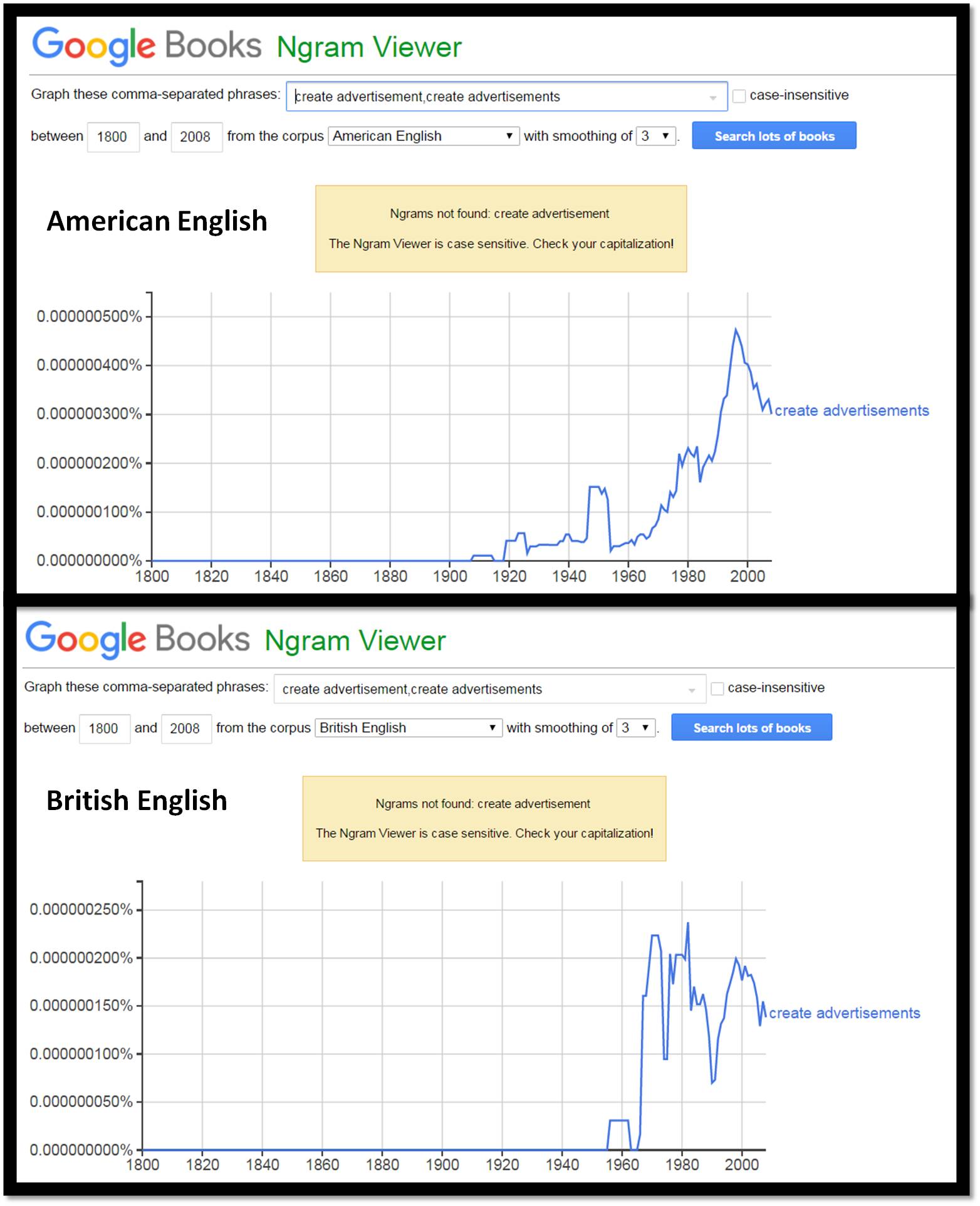I recently came upon the following sentence:
Their job is to create advertisement.
As a native speaker of American English, this sentence sounded really odd to me, so I ran it through Google's Ngram, discovering that the phrase "create advertisement" was not found (for either American or British English) as you can see from the image below:

I've also done some searches of Google web pages and have come to the same conclusion. So, I have further concluded that "advertisement" must be pluralized when not preceded by a definite article or adjective. (If I am incorrect in this assumption, please let me know.)
I wanted to explain to those who had created the sentence above (non-native speakers, presumably), from a grammatical or usage standpoint, why it wasn't correct, but my initial searches have not yielded anything worthwhile on this topic. I always feel as if I am somehow falling short on explaining the nuances of the English language whenever I have to fall back on the line, "Well, it just doesn't sound natural to me."
I've visited web pages that list words that are only plural and others that discuss when and when not to use an article with a singular or plural noun and still others that delve into the topic of count vs. non-count nouns, but, thus far, I have not seen anything that discusses nouns that need to be plural when not preceded by a definite article or adjective. I'm assuming "advertisement" isn't the only such word and that, if there are others like it, some sort of rule about their usage has evolved.
Thank you for any insight you can provide, either through your own knowledge of the English language, good logic, and/or references to other material.
